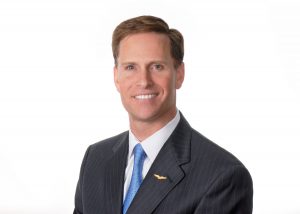

Best Practices for Communications with a Remote Workforce, with Jason Jones, Cresa
Jason Jones: [00:25:33]This comes back to leadership, leadership and thoughtful planning. There are many tools, software tools, telecommunication tools, to allow for communication between remote employees. We’re using one right now. This is a communication tool. And there are collaboration tools as well, software. But it’s how you choose to use them that’s most important. And I think one of my pieces of advice for organizations out there is to come up with cultural norms for how you, as a team or as an organization, communicate with each other. And examples of this would be, what are our hours when we are expected to respond to either voicemails and email and text messages so that we keep some structure and boundaries on our personal life and our home life? So, it could be, “Hey, from 7:00 a.m. to 7:00 p.m., it’s fair game.” Or 7:00 p.m. to 6:00 p.m., whatever the case may be. But after that, we have no expectation that you will reply to communication.
Jason Jones: [00:26:47] It could mean we, as an organization or as a team, are going to agree that we’re going to have our cameras on when we have a Zoom call or a RingCentral call. But on certain calls, perhaps just fun ones at the end of the week, you don’t have to have your camera on. So, we’re going to side culturally how we’re going to communicate. Visually, where we can see each other. Or where it’s okay to be walking your dog around the neighborhood while you’re on your conference call. You can do that now. Why shouldn’t you? Let’s have a cultural understanding of what’s acceptable and what’s not.
Jason Jones: [00:27:23] So, there’s a number of things that I think people can agree to. But the other key piece for communication is, making sure that you’re giving appropriate and consistent feedback to the remote employee. That’s very important. Because, otherwise, someone who is working remotely can feel they’re on an island. They can feel isolated. And they’re just not sure, “Am I meeting standards? Am I doing my job the way people want? Give me some feedback.” So, consistent, frequent, informal feedback – and everyone has to define what frequent means for them and their team. But I think that’s a key part of communication is making sure – and it goes both ways. The manager needs feedback also on how they’re doing sort of in a 360 view. But that’s what I would advise, is to really focus on good feedback, consistent informal communication, and then planned formal communication that perhaps is a little bit more often business reviews, for instance, than they may have been when everyone was in the office together.
Jason Jones, Principal, Cresa
Raised in Atlanta, GA, Jason Jones attended Duke University in Durham, NC on a Navy ROTC scholarship. After graduating from Duke in 1991 with a degree in political science, he traveled to Pensacola, FL and enrolled in naval flight school. In 1993 upon moving to Virginia Beach, VA, he learned to fly the A-6E Intruder as a Bombardier/Navigator and was subsequently assigned to a fleet squadron, deploying on the USS Enterprise.
In 1997 Jason left Virginia Beach to begin a tour of duty as a navy medical recruiter in Phoenix, AZ while attending Arizona State University’s Evening M.B.A. program. After leaving the Navy in 1999 he worked for one and a half years as a civilian headhunter recruiting senior executives for health insurance companies.
Upon finishing his M.B.A. in August of 2000 and before entering the business world full-time, Jason departed on a 15-month world trip on September 18th, 2000, returning to the United States on December 18th, 2001. He later documented his travels in the book Nomad: Letters From a Westward Lap of the World.
After returning from his trip, Jason entered the commercial real estate industry, ultimately landing at Cresa.
Jason Jones leads two service lines at Cresa: Technology Advisory Services and Remote Advisory Services. Technology Advisory Services helps clients select and implement Communications (voice, video), Connectivity (Internet) and Cloud computing strategies – especially during a relocation. Jason and his team help clients filter the confusion of evolving technologies and ensure coordination between the real estate and IT departments. Cresa Remote Advisory Services helps companies evaluate all the critical requirements of a remote work strategy. This leads to sustainable workforce strategies that balance working remotely with working in the office. Both services leverage human resources, technology, and real estate to maximize operations, improve talent attraction/retention and accelerate financial performance.
To contact Jason, follow this link.
You can find the complete Decision Vision interview with Jason here.
The “One Minute Interview” series is produced by John Ray and in the North Fulton studio of Business RadioX® in Alpharetta. You can find the full archive of shows by following this link.
Renasant Bank has humble roots, starting in 1904 as a $100,000 bank in a Lee County, Mississippi, bakery. Since then, Renasant has grown to become one of the Southeast’s strongest financial institutions with over $13 billion in assets and more than 190 banking, lending, wealth management and financial services offices in Mississippi, Alabama, Tennessee, Georgia and Florida. All of Renasant’s success stems from each of their banker’s commitment to investing in their communities as a way of better understanding the people they serve. At Renasant Bank, they understand you because they work and live alongside you every day.















